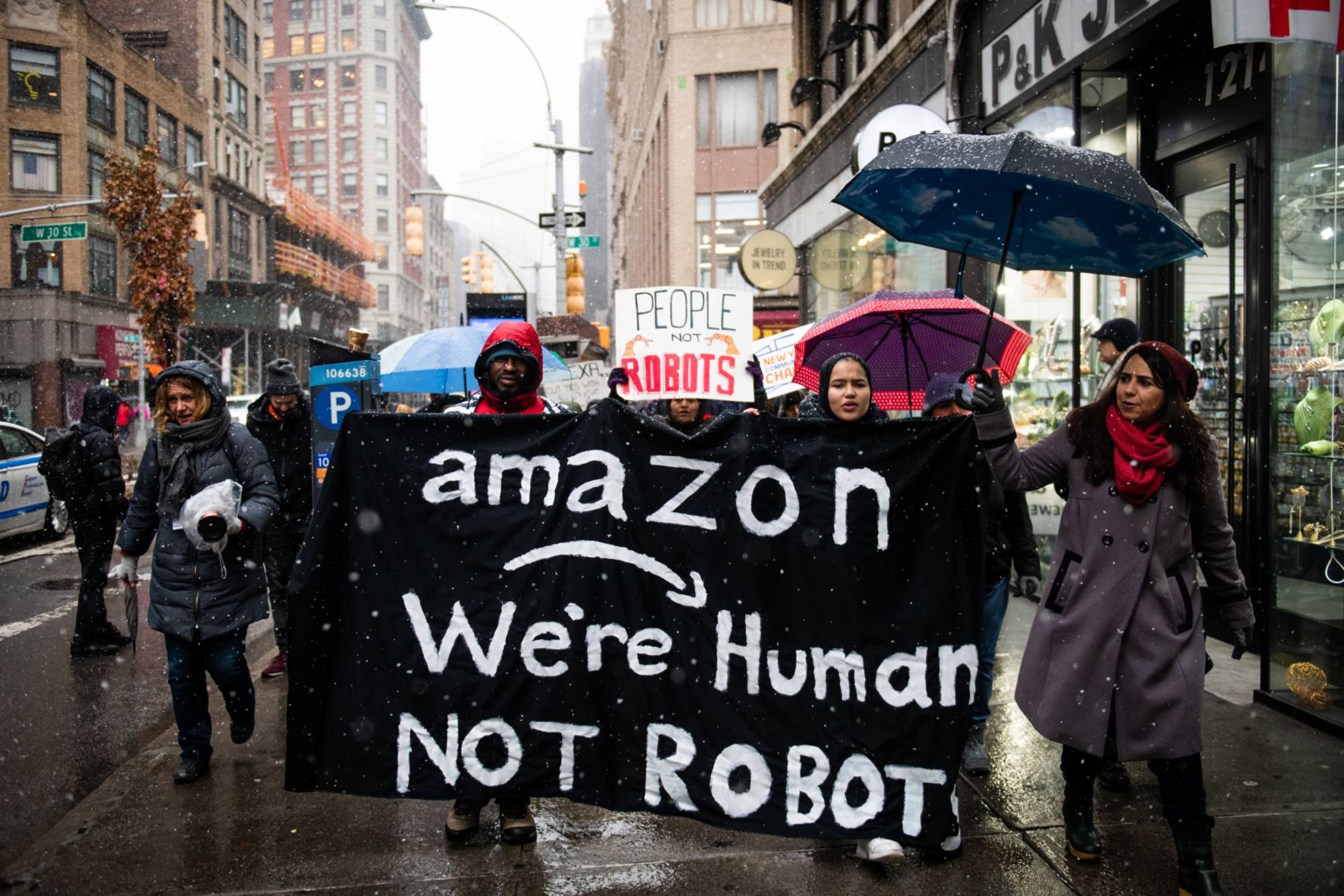Walmart inched closer to a $15 minimum wage last month, drawing tepid praise from even some of its strongest critics.
The largest U.S. employer joined Macy’s, CVS Health Corp. and Target, all of which have raised starting wages in the pandemic era of labor shortages and soaring inflation. While $15 (or $14 in Walmart’s case) is just enough for a full-time worker with no children to live in the U.S. county with the lowest cost of living, these are moves in the right direction.
Still, a crucial element missing in conversations around minimum wages and the retail industry is automation. Already in motion before the pandemic, automation has kicked into high gear since, with retailers turning to self-checkout, robotic sorting machines and automated customer service to run their businesses at a lower cost. For companies, that’s good news. But for retail workers, it’s complicated.



















With your current subscription plan you can comment on stories. However, before writing your first comment, please create a display name in the Profile section of your subscriber account page.